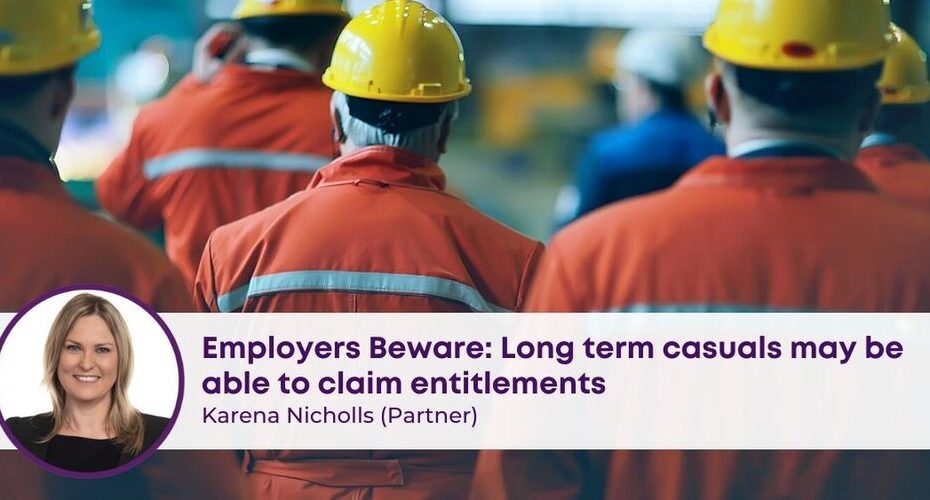The recent case of Workpac Pty v Rossato in the Full Court of the Federal Court found that a worker engaged on a casual basis was entitled to be paid annual, personal/carer’s and compassionate leave, as well as payment for public holidays because, among other things, the employer had given the worker a firm advance commitment to a continued regular pattern of work.
KEY TAKE OUTS:
Long term casual employees could now be entitled to be paid annual, personal/carers and compassionate leave, as well as public holidays if the employer has given a worker a firm commitment to a continued pattern of work
Background
Mr Rossato was an employee of WorkPac from 28 July 2014 until 9 April 2018. Over that period, six consecutive contracts of employment were made between Mr Rossato and WorkPac. WorkPac treated each employment as a casual employment and Mr Rossato as a casual employee.
Mr Rossato was a qualified and experienced production employee in the open cut black coal mining industry. WorkPac is a labour hire company. WorkPac engages workers and provides their services to its clients who require labour. WorkPac specialises in the provision of labour in particular industries including in the black coal mining industry.
WorkPac submitted that Mr Rossato’s remuneration included severable components that were attributable to his status as a “casual FTM”, as distinct from a “permanent FTM”. WorkPac submitted that these amounts comprised a “casual loading” and totalled 25% of the base rate of pay for a permanent FTM.
WorkPac submitted that upon the Court finding that Mr Rossato was not a casual employee, or a casual FTM, the basis for the payment of a casual loading, which was separate and discrete, failed. WorkPac submitted that the consideration in question was not the service given by Mr Rossato for which he was paid the flat hourly rate, but that a casual loading was accepted by Mr Rossato in discharge of any obligations in relation to annual or personal leave, or any of the other entitlements of permanent employees in issue in the proceedings, and that the basis for this component of the remuneration had failed.
Conclusion
In his employment under each of the contracts, Mr Rossato was other than a casual employee for the purposes of the Fair Work Act and was a “Permanent FTM” and not a “Casual FTM” for the purposes of the Enterprise Agreement and entitled to the applicable entitlements during the period.
Employers: This does not mean that all casual employees are now entitled to accrue and be paid entitlements, but it does create a challenge for employers with long term casual staff.
In order to minimise your risk as an employer, you should:
- ensure that casual contracts are carefully drafted and ensure that they do not make any guarantee of a number of hours or days;
- that the loading is set out clearly;
- that you do not make any representations to employees which could be taken to be guaranteed hours or work or certain days; and
- ensure roster periods are only as long as required.
ABOUT KARENA NICHOLLS:

Karena is a Partner at Coutts Lawyers & Conveyancers and is the Head of our Injury Compensation (with extensive knowledge in personal injury) and Employment Law teams. She is passionate and dedicated to helping her clients understand their rights and obligations and advising them on the best course of action to achieve their desired outcomes. It is her practical and client-orientated approach which has attributed to her authentic reputation positioning her as a highly regarded compensation and employment lawyer.
For further information please don’t hesitate to contact:
Karena Nicholls
Partner
karena@couttslegal.com.au
1300 268 887
This blog is merely general and non specific information on the subject matter and is not and should not be considered or relied on as legal advice. Coutts is not responsible for any cost, expense, loss or liability whatsoever in relation to this blog, including all or any reliance on this blog or use or application of this blog by you.



